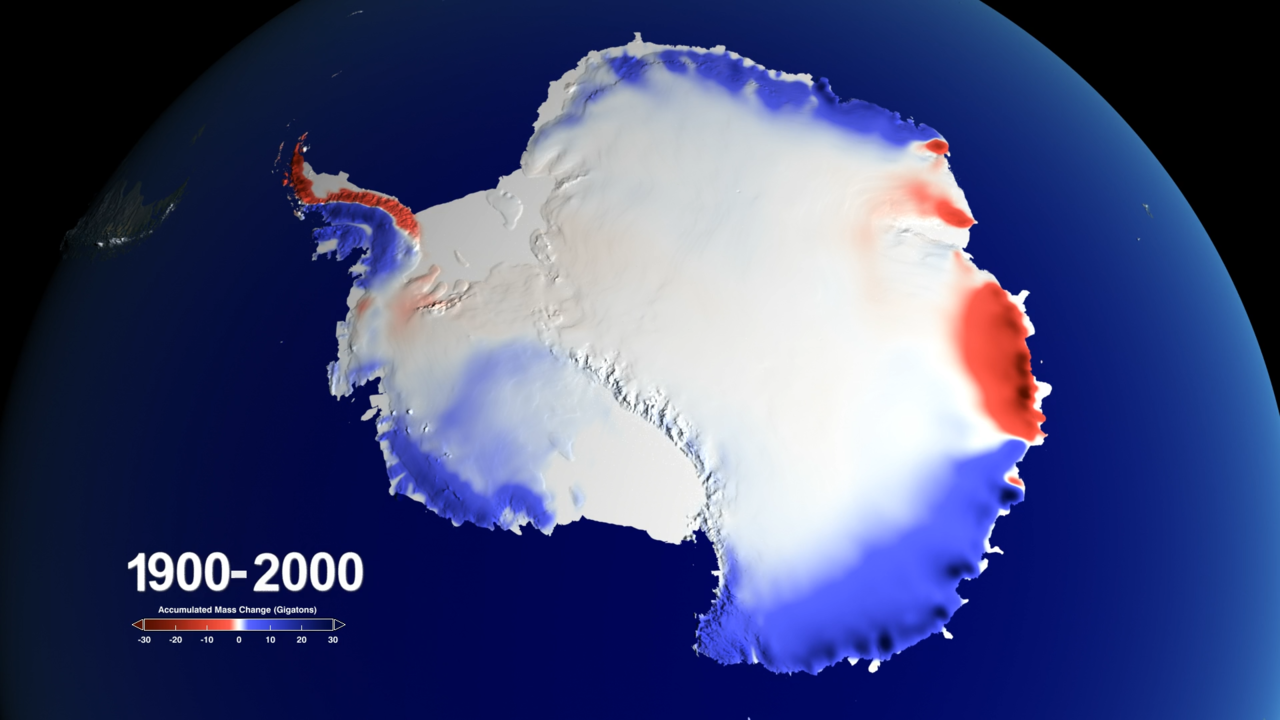https://www.nytimes.com/interactive/2021/12/13/climate/antarctic-climate-change.html
"In effect, “Antarctica is melting from the bottom,” said Henri Drake, an oceanographer at the Massachusetts Institute of Technology." And. . . "By some estimates the oceans have taken up about 25 percent of the excess carbon dioxide, and more than 90 percent of the excess heat, that has resulted from burning of fossil fuels and other human activities since the 19th century. But the deep ocean water that upwells around Antarctica contains even more carbon dioxide — not from current emissions, but dissolved over centuries from organic matter including decaying marine organisms, tiny and immense, that sink when they die.
“It’s been accumulating the rot of ages,” Dr. Russell said.
Rising From the Antarctic, a Climate Alarm
Wilder winds are altering currents. The sea is releasing carbon dioxide. Ice is melting from below.
The immense and forbidding Southern Ocean is famous for howling gales and devilish swells that have tested mariners for centuries. But its true strength lies beneath the waves.
The ocean’s dominant feature, extending up to two miles deep and as much as 1,200 miles wide, is the Antarctic Circumpolar Current, by far the largest current in the world. It is the world’s climate engine, and it has kept the world from warming even more by drawing deep water from the Atlantic, Pacific and Indian oceans, much of which has been submerged for hundreds of years, and pulling it to the surface. There, it exchanges heat and carbon dioxide with the atmosphere before being dispatched again on its eternal round trip.
Without this action, which scientists call upwelling, the world would be even hotter than it has become as a result of human-caused emissions of carbon dioxide and other heat-trapping gases.
“From no perspective is there any place more important than the Southern Ocean,” said Joellen L. Russell, an oceanographer at the University of Arizona. “There’s nothing like it on Planet Earth.”
For centuries this ocean was largely unknown, its conditions so extreme that only a relative handful of sailors plied its iceberg-infested waters. What fragmentary scientific knowledge was available came from measurements taken by explorers, naval ships, the occasional research expeditions or whaling vessels.
But more recently, a new generation of floating, autonomous probes that can collect temperature, density and other data for years — diving deep underwater, and even exploring beneath the Antarctic sea ice, before rising to the surface to phone home — has enabled scientists to learn much more.
They have discovered that global warming is affecting the Antarctic current in complex ways, and these shifts could complicate the ability to fight climate change in the future.
As the world warms, Dr. Russell and others say, the unceasing winds that drive the upwelling are getting stronger. That could have the effect of releasing more carbon dioxide into the atmosphere, by bringing to the surface more of the deep water that has held this carbon locked away for centuries. . ."


No comments:
Post a Comment